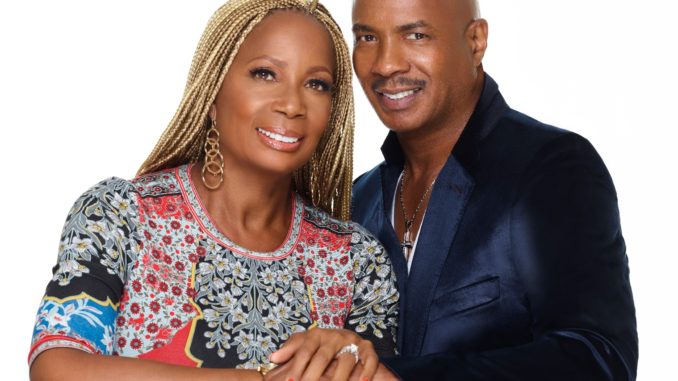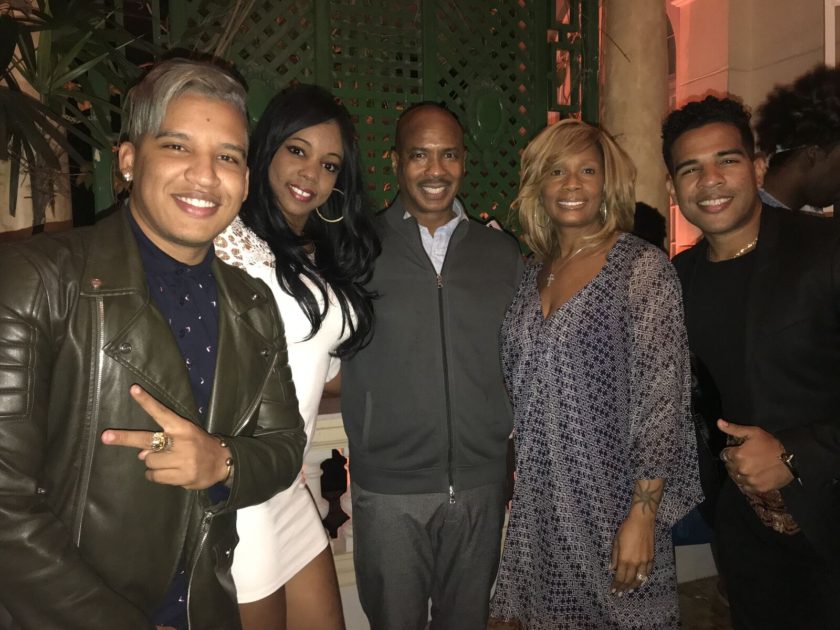
TEANECK, N.J.—The Teaneck International Film Festival—Thursday, Nov. 14 through Sunday, Nov. 17—is presenting a “collection of compelling and imaginative feature-length films, documentaries and shorts from a variety of cultures,” including one local couple’s musical journey to the controversial island nation of Cuba.
Music industry celebrities and Teaneck residents Vivian Scott Chew and Ray Chew’s new film “Two Beats, One Soul,” explores Cuba’s rich musical history, connecting the beat, vibration and soul of Cuba’s past to the present.
Since the 19th century, Cuban music has been hugely popular and influential throughout the world. Cuban music has contributed to the development of a wide variety of genres and musical styles including rumba, Afro-Cuban jazz, salsa and more.
“Two Beats, One Soul”—which will open the festival in an already sold-out viewing at Teaneck Cinemas—features participating artists that have collectively earned 16 Grammy Awards. The film’s corresponding soundtrack was released Oct. 13.
The film shows the album-making process with an upfront glimpse into the Cuban culture and lifestyle through a musical lens.
“Two Beats, One Soul” is also a geographical capsule of Cuban music, spanning from the vibrant cities in the north to the southern shores of the Caribbean island.
The album explores the musical communities of Guines, birthplace of Tata Guines, the father of Afro-Cuban music, or better known as “The King of Congos”; Matanzas, best known for its poets and dance traditions like the Danzon and the rumba, and the country’s capital, Havana.
The film features music from producers Ray Chew, Louie Vega, Sergio George and Cuba’s own, Manolito Simonet.
Simonet also joins fellow Cuban artists Ruben and Gabriel Rodriguez, Xiomara Laugart and Milagros Hodelin. Representing the United States are rhythm and blues/soul mainstays Eric Benet, Jon B. and Josh Milan. Rounding out the project are Latin/pop/Latin soul artists Jean Rodriguez and Anane.
The Chews’ album and documentary were shot at Abdala Studios in Havana. It’s the latest effort for the dynamic couple well known in the music industry.
Vivian Chew of RVMK Records is an industry veteran and has worked at Epic Records/Sony Music. She is best known for introducing the music of Jamaica to the mainstream U.S. audience, garnering multi-platinum sales on dancehall music records.
Ray Chew is an illustrious musical director and producer known for his talents across television programs and live televised events. He has been the musical director of “Dancing with the Stars” for 10 years and previously was the musical director for “American Idol.” Ray is sought after for prestigious music specials and historic landmark events including the annual Rockefeller Tree Lighting, Miss Universe, Miss USA, the 65th Primetime Emmy Awards, the Grammy Awards Premiere Ceremony and the 2008 Democratic National Convention.
Among their many musical milestones, Ray and Vivian also curate “A Night of Inspiration” at Carnegie Hall. It is a sold out all-star concert to promote diversity at the famed venue. In 2018, Ray’s third iteration of the event featured him conducting a 64-piece orchestra and massive choir for notable artists from the gospel and secular communities.
Northern Valley Press recently had the opportunity to speak with Vivian and Ray Chew about their experiences in Cuba.
• • •
Hillary Viders: Did you have to go through a lot of political red tape to bring yourself and a group of American musicians to Cuba?
Ray and Vivian Chew: Americans can still go to Cuba using the person-to-person criteria. We were admitted as a cultural exchange. But, there are new regulations. During our last visit, I saw that all the airlines had to cancel their flights other than to Havana.
HV: How many people in all were involved in making “Two Beats, One Soul?”
R & V: We brought eight recording artists and did collaboration with Cuban artists as well. The majority of the musicians were in Cuba.
HV: Are the recording and film studios in Cuba as modern and well equipped as they are here in the U.S.?
R & V: No. They are about a decade behind in progress compared to the U.S. They have limited equipment and don’t get supplies down there, so they have to use a lot of duct tape. Also, foreigners are not allowed to bring technical equipment through the airport. But they have great creativity and ingenuity with problem solving that keeps them going. They have little to work with but they make a lot! For example, we had a problem with a keyboard and these guys went to work and figured it out instead of having to replace the keyboard.
HV: What were the biggest challenges you faced while recording your album and making the accompanying documentary?
R & V: For one, Americans are not allowed to do business directly in Cuba. As such, there were no financial transactions between us and anybody on the island. Fortunately, we had an executive producer, Antonio Martinez, who had the only Cuban-based, non-Cuban entertainment company sanctioned by the government. Antonio, who is part Spanish from Spain and part German, was our furnishing company and he paid for everything, i.e., the studio time, the musicians, and everything that we needed.
We also had personal challenges. Only 30% of the island has working internet and cell phone reception. There are not cell phone plans in Cuba, so you can wind up with a $1,000 cell phone bill in one day. There were no ATMs or credit cards on the island, so everything had to be paid in cash.
Vivian: One day, I cut my foot and Ray asked for a Band-Aid in the hotel where we were staying. He was gone a very long time. It turned out that not only did the hotel not have Band-Aids, the local pharmacy didn’t even have a Band-Aid! So, whenever we came back to Cuba we brought basic things to give people, like Band-Aids and ointment.
Another initial challenge was that we do not speak Spanish, but we had a translator with us and the language of music is universal, so we worked beautifully with the Cuban recording artists.

HV: Will the Cuban musicians be allowed to do a musical tour or are they restricted by the government?
R & V: They cannot tour outside of Cuba because they are all government controlled employees. But, one of our Cuban album producers, Manolito Simonet, has a wonderful manager who knows the legal process and arranged for him to tour around the world for many years. Simonet was able to get visas to bring some of the young talent here. The other executive producers of the film, Mark and Kathy Grier, are Americans who have embraced the Cuban culture and they also helped us a lot.
HV: Did you have a chance to interact with the local people in Cuba?
R & V: We made several trips to Cuba starting in June, 2016. Our first trip was to gather information about the culture of the country and we went to all different provinces. The people everywhere are very warm and welcoming. They welcomed us into their homes and were so appreciative of the cultural exchange that we were bringing. They have very little compared to what people have here. The average salary is equivalent to $30 a month and they live on food vouchers that are used up before half the month is over. Also, unlike the stores for tourists, the local grocery stores are stocked very minimally. It was really eye opening for us. But they are happy people and do not complain. They love their country. The most important thing that we walked away with was their great love!
